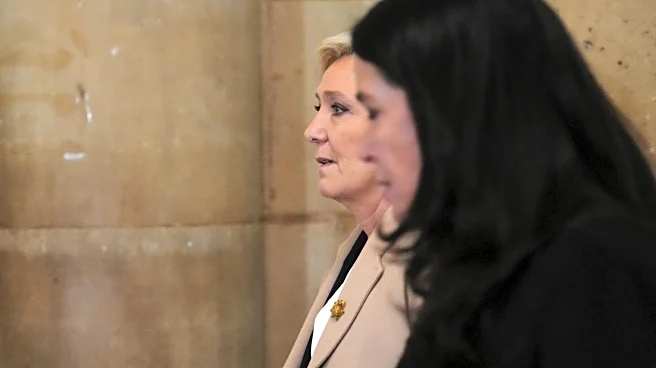What's Happening?
A recent report by WalletHub has revealed a significant increase in credit card delinquencies across the United States, driven by high interest rates and elevated living costs. The report compares data
from the first and second quarters of 2025, highlighting which states have experienced the sharpest increases in missed payments. Minnesota leads the nation with a 32.88% rise in delinquencies, followed by Iowa and Kansas with increases of 31.53% and 30.22%, respectively. South Dakota and Ohio also reported significant increases. The report indicates that these states are facing heightened financial pressures due to persistent inflation and higher interest rates, which have made households more vulnerable. Conversely, states like Florida, Vermont, and Wyoming have seen smaller increases, possibly due to stronger local economies and more resilient labor markets.
Why It's Important?
The rise in credit card delinquencies is a critical indicator of financial stress among U.S. households. As interest rates remain high, the cost of borrowing increases, putting additional pressure on consumers already dealing with inflation and stagnant wage growth. This trend could have broader economic implications, potentially affecting consumer spending, which is a major driver of the U.S. economy. States with higher delinquency rates may face challenges in maintaining economic stability, while those with lower rates might benefit from stronger economic resilience. The situation underscores the importance of effective economic policies that balance protection of domestic industries with the need to manage consumer costs.
What's Next?
As credit card delinquencies continue to rise, financial institutions and policymakers may need to consider strategies to mitigate the impact on consumers. This could include offering hardship programs, promoting strategic budgeting, and exploring debt consolidation options. Additionally, there may be increased scrutiny on economic policies that contribute to higher consumer prices. Stakeholders, including government officials and financial analysts, will likely monitor these trends closely to assess the need for policy adjustments or interventions to support household financial stability.
Beyond the Headlines
The increase in credit card delinquencies also raises questions about the long-term sustainability of current economic policies. While measures such as tariffs aim to protect U.S. industries, they may inadvertently contribute to higher consumer prices, exacerbating financial pressures on households. This situation highlights the complex interplay between economic policy and consumer welfare, suggesting a need for a balanced approach that considers both industry protection and consumer affordability.











